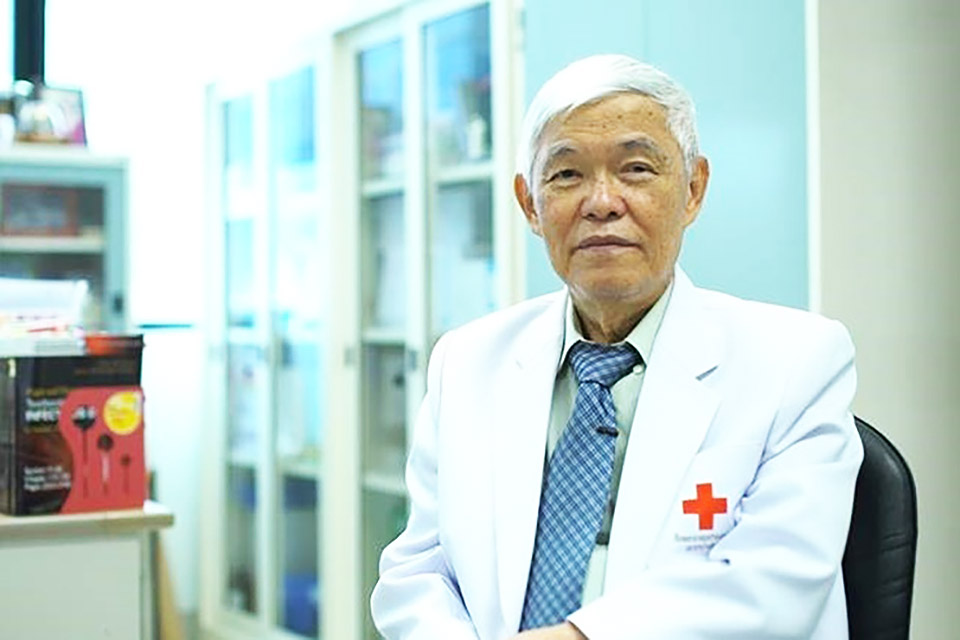
Dr. Yong Poovorawan, a virology expert at Chulalongkorn University’s Faculty of Medicine, has provided explanations as to why the Omicron variant of the coronavirus is causing less severe symptoms of COVID-19 than earlier strains.
According to the expert virologist, there were 5 reasons for the symptoms of those infected with the Omicron variant being less severe.
Firstly, the number of infections in children has risen greatly and symptoms in this population group are not severe. Infected children generally present cold-like symptoms or no symptoms. The severity of symptoms increases with age, and this is most apparent in the elderly.
Secondly, a large number of adults, including the elderly, have already been vaccinated. Vaccination reduces the severity of symptoms when an individual contracts COVID-19.
Thirdly, real-world studies such as those in South Africa have found that the Omicron variant inflicts less damage on patients than the Delta variant.
Dr. Yong cited cell culture studies pointing to the bulk of the virus being concentrated at cells of the upper respiratory tract instead of those in the lungs, meaning less of the virus was entering the lungs of infected persons.
He added that the coronavirus has evolved to better co-exist with host cells, in a manner similar to how past respiratory tract viruses caused severe infections at first before transforming into endemic diseases.
Although the number of worldwide daily new infections has topped a million, the death rate from infections has declined. Dr. Yong said infection numbers only took into account confirmed infections whereas there were great numbers of infected persons who either did not get tested or did not display symptoms. He believed the real infections figure was likely many times higher than that reported to the World Health Organization and these untallied individuals have already developed immunity to COVID-19. Dr. Yong said that taken together with vaccinated individuals, it is likely that the world now has several billion people with immunity. (NNT)
 |
 |
 |





